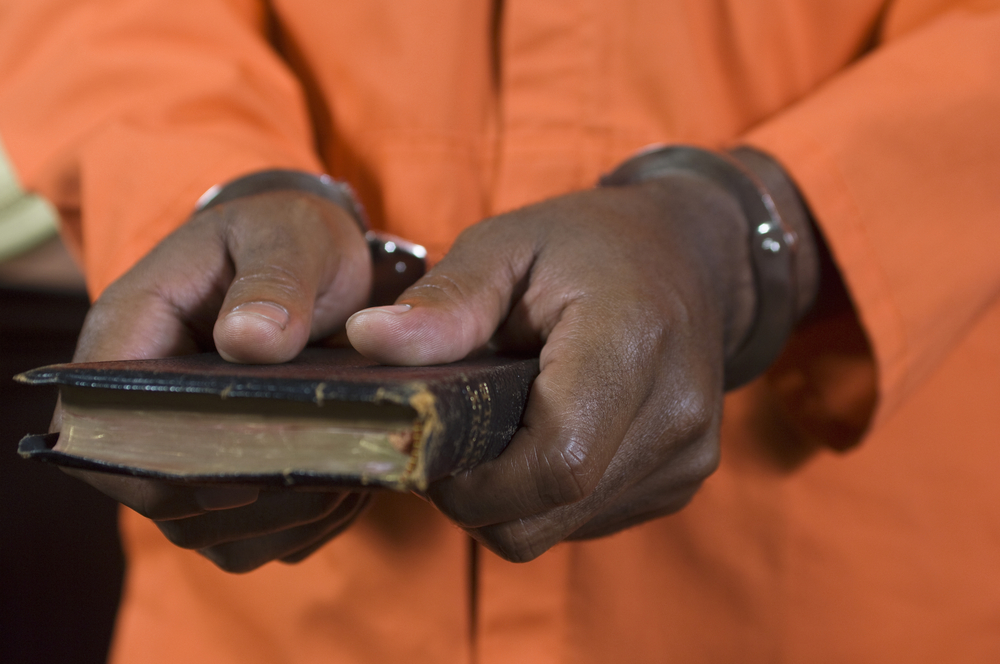In the harsh reality of prison life, an unexpected phenomenon is unfolding: many men are discovering or rediscovering faith. This trend raises intriguing questions about the intersection of incarceration, personal transformation, and spirituality. What drives these men to seek solace in religion, and why does the prison environment often act as a catalyst for spiritual discovery?
Sanctuary amid chaos
Prison life is marked by constant tension, violence, and a struggle for survival. In this turbulent environment, religion offers a refuge. Many inmates find that faith provides:
- A sense of community and belonging
- Structure and routine in daily life
- A safe space away from prison politics and violence
- Access to positive role models and mentors
Religious groups within prisons often become tight-knit communities, offering support and camaraderie in an otherwise hostile setting. For many, this spiritual involvement becomes a lifeline, helping them navigate the challenges of incarceration.
The quest for redemption
Guilt and regret are common companions for many inmates. The weight of past actions can be overwhelming, leading many to seek forgiveness through faith. Religion offers:
- A path to atonement and spiritual cleansing
- Hope for personal transformation
- A framework for making amends
- The possibility of forgiveness from a higher power
This journey toward redemption often becomes a driving force in an inmate’s life, shaping their actions and outlook both during and after their sentence.
Filling the void
Incarceration strips away many of life’s distractions, forcing introspection and self-examination. In this space, many men confront an inner emptiness they may have previously ignored. Religion steps in to fill this void by providing:
- A sense of purpose and meaning
- Spiritual fulfillment
- Connection to something greater than oneself
- A new perspective on life’s challenges
For many, this spiritual awakening becomes a transformative experience, shifting their focus from external circumstances to internal growth and meaning.
Rebuilding bridges
The desire to reconnect with family and community often drives men toward faith in prison. Religion can serve as:
- A sign of personal growth and change
- A way to demonstrate commitment to a better life
- A shared value system with loved ones
- An opportunity to engage with outside volunteers and mentors
By embracing faith, many inmates hope to rebuild trust with their families and prepare for a more positive role in society upon release.
Preparing for life after bars
For many men, finding religion in prison is also about preparing for the future. Faith-based involvement can provide:
- A moral framework for decision-making
- A support system for reintegration into society
- Opportunities for community service and volunteering
- A sense of purpose and direction post-release
Studies suggest that religious involvement can help reduce recidivism, offering inmates a new path forward as they transition back into their communities.
Emotional healing and coping
The emotional toll of incarceration is immense. Many men turn to faith as a way to process their experiences and find inner peace. Religion offers:
- Comfort in times of distress
- Tools for emotional regulation, such as prayer and meditation
- A sense of hope and optimism
- A way to make sense of suffering and hardship
Through their spiritual practices, many inmates find the strength to confront their deepest fears and insecurities, leading to profound emotional healing.
A complex journey of transformation
The phenomenon of men finding religion in prison is multifaceted, reflecting the complex interplay of personal, social, and environmental factors. While critics may question the authenticity of jailhouse conversions, for many inmates, this spiritual journey represents a genuine and transformative experience.
As prisons continue to grapple with issues of rehabilitation and recidivism, the role of faith-based programs remains a topic of debate. However, for the men who find solace, purpose, and hope through religion during their incarceration, the impact is undeniable. Their stories of transformation serve as a powerful testament to the potential for change, even in the most challenging circumstances.
The path from prisoner to believer is rarely straightforward, but for many, it offers a chance at redemption, healing, and a new beginning. As society continues to wrestle with questions of criminal justice reform, the role of spirituality in rehabilitation remains an important area for consideration and further study.
This story was created using AI technology.
















